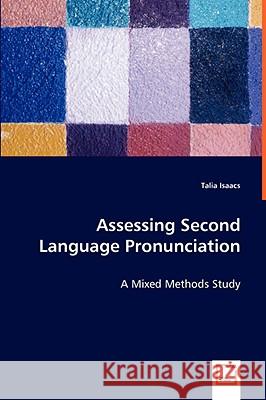Assessing Second Language Pronunciation - A Mixed Methods Study » książka
Assessing Second Language Pronunciation - A Mixed Methods Study
ISBN-13: 9783639043778 / Angielski / Miękka / 2008 / 100 str.
Intelligibility has been widely regarded as an appropriate goal for second language pronunciation teaching. Yet there is no universal definition of intelligibility, nor a field-wide consensus on how to best measure it. Further, there is little empirical evidence to suggest which pronunciation features are most critical for intelligibility. This mixed methods study investigates whether intelligibility is an appropriate criterion for assessing pronunciation proficiency in the academic domain. Speech samples of 19 non-native speaking graduate students were elicited using the TSE, a standardized spoken proficiency test often used to screen international teaching assistants. Results of a fined-grained analysis of the speech data coupled with intelligibility ratings of 18 undergraduate students suggest that intelligibility, though an adequate assessment criterion, is a necessary but not a sufficient condition for graduate students to instruct undergraduate courses.The insights offered by this empirical study and state-of-the art introduction on intelligibility are pertinent to anyone with an interest in spoken language assessment, pronunciation pedagogy, or mixed methods research.











